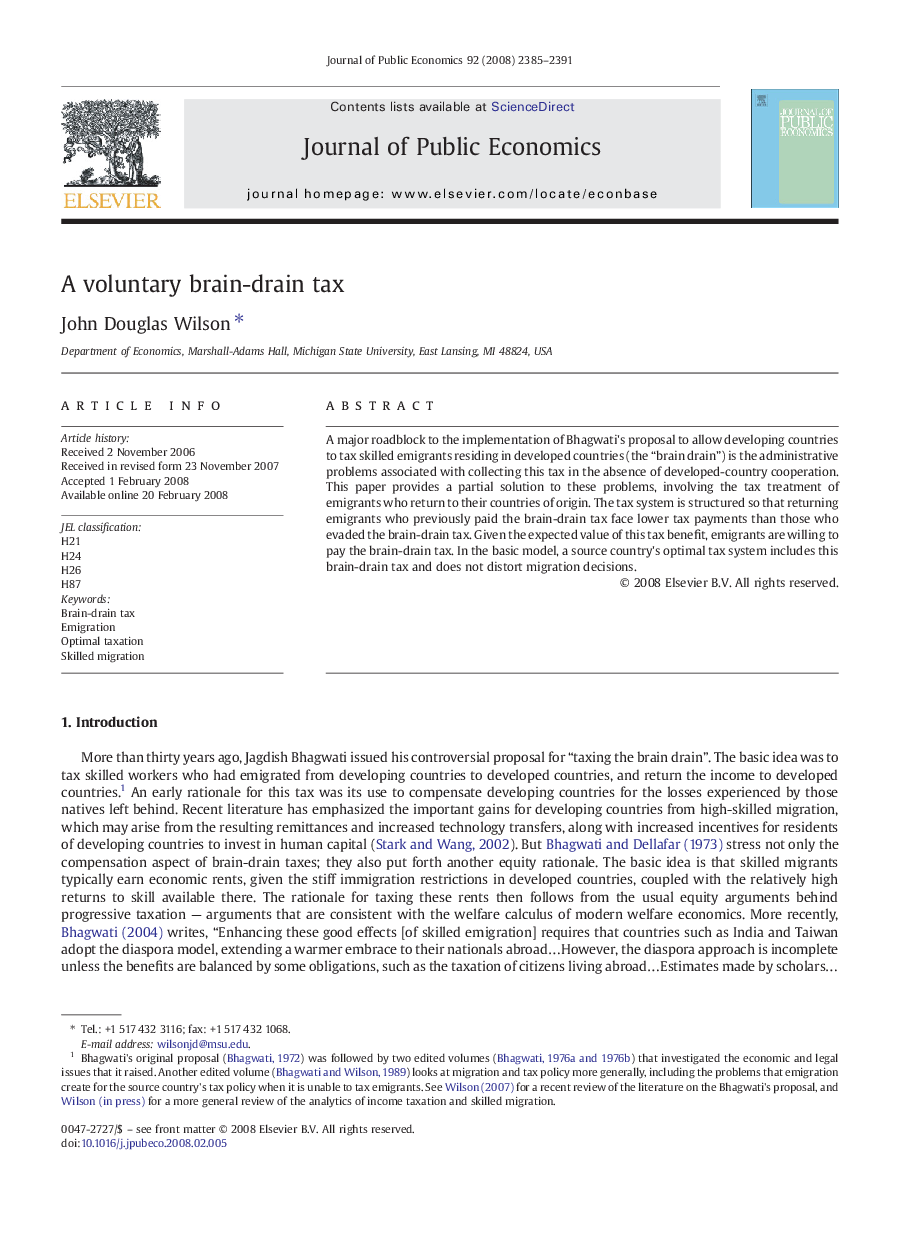| Article ID | Journal | Published Year | Pages | File Type |
|---|---|---|---|---|
| 970206 | Journal of Public Economics | 2008 | 7 Pages |
A major roadblock to the implementation of Bhagwati's proposal to allow developing countries to tax skilled emigrants residing in developed countries (the “brain drain”) is the administrative problems associated with collecting this tax in the absence of developed-country cooperation. This paper provides a partial solution to these problems, involving the tax treatment of emigrants who return to their countries of origin. The tax system is structured so that returning emigrants who previously paid the brain-drain tax face lower tax payments than those who evaded the brain-drain tax. Given the expected value of this tax benefit, emigrants are willing to pay the brain-drain tax. In the basic model, a source country's optimal tax system includes this brain-drain tax and does not distort migration decisions.
